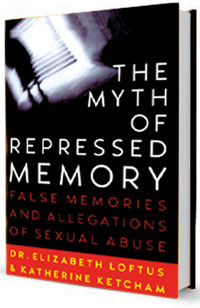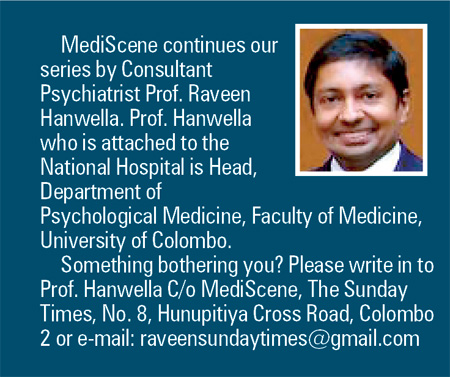Memories are made up or real?
View(s):By Prof. Raveen Hanwella
In Akira Kurosawa’s film Rashomon four people witness a murder, but each tells a different version of the event. Were they lying or did each one believe that his or her version of the story was true? How reliable is our memory? In previous articles I have discussed how we forget,but in this article I am going to discuss, how we remember.
 Elizabeth Loftus is a distinguished Professor of Social Ecology and a Professor of Law, and of Cognitive Science in the Departments of Psychology and Social Behaviour, and Criminology, Law, and Society in the University of California. She has been the recipient of many threatening letters, some have written to her university asking that she be fired from her job. When she speaks at conferences, security has been employed to protect her and she has been litigated against until the Supreme Court of California ruled in her favour. What was the nature of her work that roused such emotions of hate in people? She is one of the world’s experts on human memory. Her pioneering work is the reliability of eye witness testimony.
Elizabeth Loftus is a distinguished Professor of Social Ecology and a Professor of Law, and of Cognitive Science in the Departments of Psychology and Social Behaviour, and Criminology, Law, and Society in the University of California. She has been the recipient of many threatening letters, some have written to her university asking that she be fired from her job. When she speaks at conferences, security has been employed to protect her and she has been litigated against until the Supreme Court of California ruled in her favour. What was the nature of her work that roused such emotions of hate in people? She is one of the world’s experts on human memory. Her pioneering work is the reliability of eye witness testimony.
In Arthur Conan Doyle’s first Sherlock Holmes book, A Study in Scarlet, Dr Watson is surprised that the great detective does not know that the earth moves around the sun. Sherlock Holmes tells Dr Watson, ‘I consider that a man’s brain originally is like a little empty attic, and you have to stock it with such furniture as you choose. A fool takes in all the lumber of every sort that he comes across, so that the knowledge which might be useful to him gets crowded out, or at best is jumbled up with a lot of other things, so that he has difficulty in laying his hands upon it.’
Was Sherlock Holmes right? Do our brains store memories like objects in an attic? In modern terms do our brains store memories like in a video recorder, where events are recorded exactly as the camera sees it? If so it would follow that like the video tape the brain would have a limited capacity and forget when we cannot find the relevant tape but if found, would be a true representation of what happened.
 Elizabeth Loftus’s pioneering research helped demonstrate that our memories are not accurate representations of actual events but are reconstructed using past experiences combined with other information. In an early study by Loftus called the Reconstruction of Automobile Destruction, people were shown films of automobile accidents. Some were asked the question, “About how fast were the cars going when they smashed into each other?” In others the verb smashed was replaced by collided, bumped, contacted, or hit. When smashed was used the persons reported that the cars were going faster than when the other verbs were used. They also said there was broken glass on the scene when in reality there was none.
Elizabeth Loftus’s pioneering research helped demonstrate that our memories are not accurate representations of actual events but are reconstructed using past experiences combined with other information. In an early study by Loftus called the Reconstruction of Automobile Destruction, people were shown films of automobile accidents. Some were asked the question, “About how fast were the cars going when they smashed into each other?” In others the verb smashed was replaced by collided, bumped, contacted, or hit. When smashed was used the persons reported that the cars were going faster than when the other verbs were used. They also said there was broken glass on the scene when in reality there was none.
The experiment showed how a question is worded can significantly influence the answer. When a complex event happens two kinds of information enter our memory. The first, is information from the original event and the second, the information supplied after the fact. Over time the information from the two sources become combined into one memory and the mind cannot distinguish one from the other.
It may be easy to accept that our minds can alter memories but is it possible for our minds to invent memories of events that never occurred? Loftus’s ‘Lost in the Mall Experiment’ demonstrates that it is indeed possible for our brains to create ‘false’ memories. One of her graduate students Jim Cohen persuaded his mother, sister, and brother to be subjects in the study. He prepared four stories describing childhood events and asked them to memorise them. Later he asked them to write down the memories giving as much detail as they could recall. Unknown to them one of the four stories was false. The false story describes Cohen’s brother Chris aged 5 years getting lost in a shopping mall and being rescued by an elderly person and reunited with his family. When Chris wrote down the story he added additional details of the false narrative. Later when told that the event never occurred he expressed disbelief.
In the early 1990s America was shocked by several cases of women revealing that they were abused as children by their parents. In 1992 a group of concerned parents formed the False Memory Syndrome Foundation (FMSF). The stories were similar, Middle class females underwent psychotherapy for depression or related problems. During therapy they uncovered with the help of the therapist forgotten memories of sexual abuse, usually by the father, sometimes by mothers. When several of these parents were charged in courts they turned to Elizabeth Loftus for help and in some her testimony helped to refute the allegations.
In her book, The Myth of Repressed Memory, Elizabeth Loftus describes such cases in detail. I would urge you to read the book and also watch her TED talk on the subject. You can Google for the link. Loftus showed that most of these so-called memories were induced by overzealous therapists. The string of litigation stopped only when the therapists in turn were successfully sued by angry victims. It was this work that generated much of the hate mail against Loftus. But at the age of 71, she refuses to be deterred and fearlessly continues her work.
In 2010, the American Association for the Advancement of Science,conferred on her the Scientific Freedom and Responsibility Award for ‘the profound impact that her pioneering research on human memory has had on the administration of justice in the United States and abroad.’
I end with a quotation from that courageous lady, “If I’ve learned anything from these decades of working on these problems, it’s this. Just because somebody tells you something and they say it with confidence, just because they say it with lots of detail, just because they express emotion when they say it, it doesn’t mean that it really happened. We can’t reliably distinguish true memories from false memories. We need independent corroboration. . . . Memory like liberty, is a fragile thing.”


